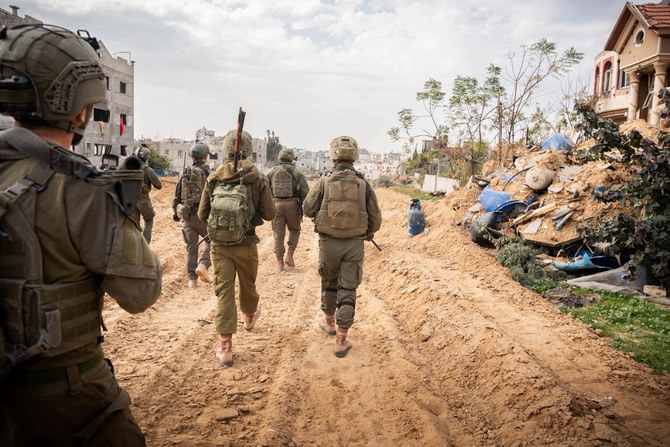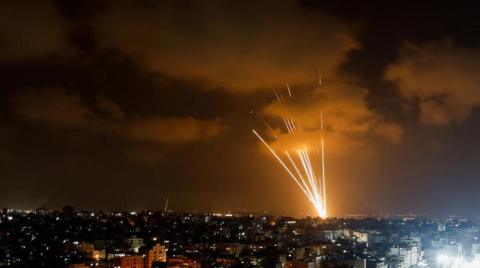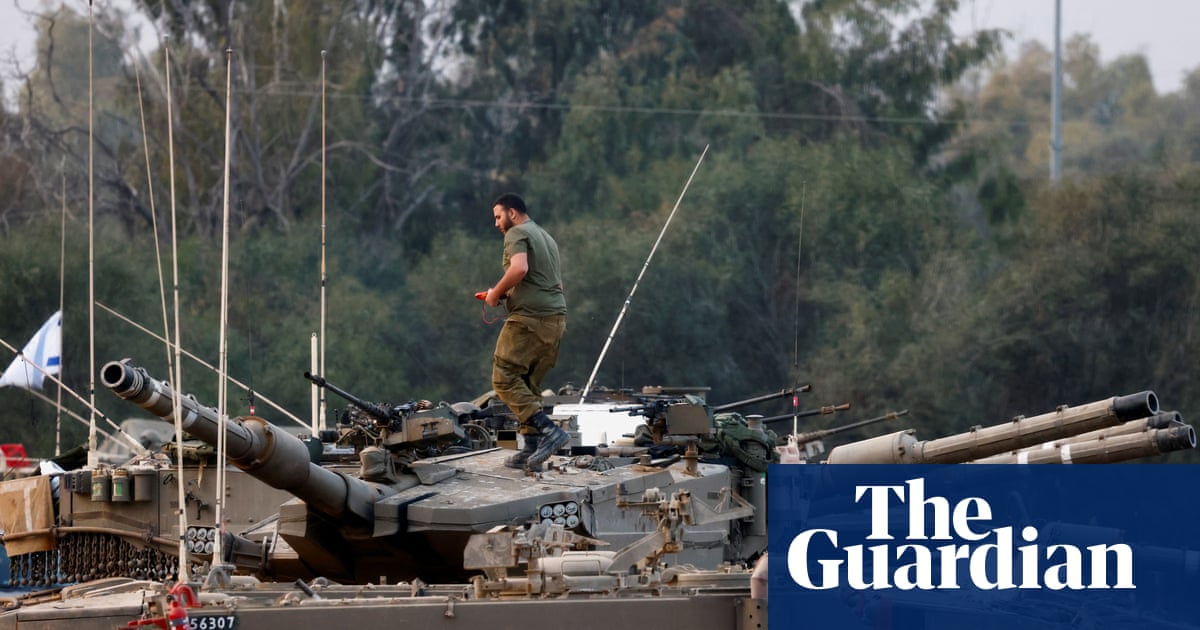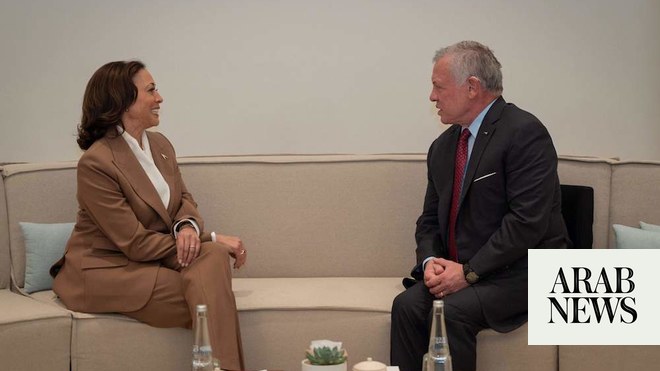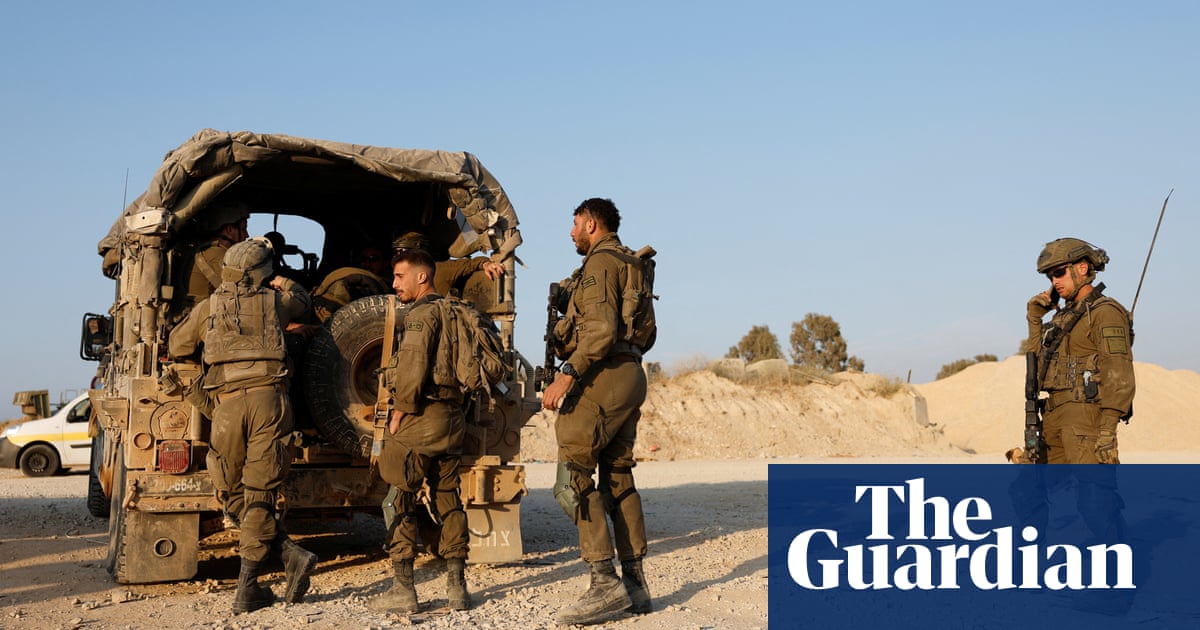
Israel has pulled all of its ground troops out of southern Gaza for “tactical reasons”, the country’s army has said, raising questions about the future direction of the war as Hamas and Israeli delegations travel to Egypt for a new round of ceasefire talks.
Two brigades will stay in the northern half of the Gaza Strip and the new corridor that now bifurcates the Palestinian territory at Wadi Gaza, the Israel Defense Forces said on Sunday, in order to “preserve the IDF’s freedom of action and its ability to conduct precise intelligence based-operations”.
It is believed the drawdown is primarily to relieve reservists after nearly four months of intense fighting in the decimated southern city of Khan Younis, rather than any significant shift in strategy.
An army official who spoke to the Israel daily Haaretz said: “There’s no need for us to remain in Khan Younis. The 98th Division dismantled Hamas’s Khan Younis brigades and killed thousands of its members. We did everything we could there.”
Displaced Palestinians from the city may now be able to return to their homes, they said.
Military analysts said on Sunday that an Israeli ground offensive on Gaza’s southernmost town of Rafah, where about 1.5 million people were sheltering, was not off the table.
But the timing of the announcement coincides with the beginning of a round of mediated talks in Cairo, the Egyptian capital, aimed at securing a second truce and hostage release deal, and is being received as a positive sign that the latest negotiations - after much faltering - may finally bear fruit.
Israel confirmed on Sunday it would send a delegation to take part in the new talks, after the Palestinian militant group Hamas had announced the day before it would send negotiators.
Israeli media reported that the country’s delegation included the chiefs of the Mossad and Shin Bet, and is operating with an “expanded mandate”. The CIA director, Bill Burns, is also expected to attend the talks, which will begin on Sunday evening, alongside the Qatari foreign minister, Sheikh Mohammed bin Abdulrahman Al Thani.
Although 100 Israelis were freed in a week-long ceasefire at the end of November in exchange for 240 Palestinian women and children held in Israeli jails, negotiations since then aimed at a second, longer truce and the release of the remaining hostages in the six-month war have repeatedly failed.
Before the new talks began, Hamas reiterated its demands issued in a 14 March proposal, which include a permanent ceasefire, the withdrawal of Israeli forces from Gaza, a return of the displaced to their homes, and a “serious” exchange deal of Palestinian prisoners for Israeli hostages being held in Gaza, a statement said.
The Israeli prime minister, Benjamin Netanyahu, who is under growing international pressure over his forces’ conduct in Gaza and the desperate humanitarian situation, said on Sunday that Israel would not give into Hamas’s “extreme” demands or agree to any ceasefire until the remaining hostages were released.
Concerns about a wider regional conflict drawing in Lebanon’s Iran-backed Hezbollah continued as Gen Rahim Safavi, a senior Iranian military adviser, told Israel that none of its embassies were safe after last week’s strike by Israel on an Iranian diplomatic site in Damascus that killed two elite Iranian generals. Netanyahu said Israel was prepared for any response. “Whoever harms us or plans to harm us, we will harm them,” he said.
Hamas, the militant group that seized control of Gaza in 2007, triggered the bloodiest war in the decades-old Israeli-Palestinian conflict with an unprecedented cross-border attack on 7 October, in which they killed about 1,200 people, mostly civilians, and abducted another 250, according to official Israeli tallies. On Sunday, people gathered at the site of the Nova desert music festival in southern Israel to pay tribute to the young revellers who were killed or kidnapped there.
Israel’s retaliatory offensive has killed more than 33,000 people, according to the health ministry in the Hamas-run territory, and driven almost all of the 2.3 million population from their homes.
Famine is “projected and imminent” in the northern half of Gaza, a UN-backed report said last month, and according to Oxfam the number of people facing “catastrophic levels” of hunger has nearly doubled since December.
Israel denies blocking aid, saying shortages are a result of logistics failures by humanitarian organisations or Hamas diverting supplies. But aid agencies say that delivery has been severely hampered by a combination of logistical obstacles, damaged roads, a breakdown of public order and lengthy bureaucratic controls imposed by Israel.
Some aid groups say sending truck convoys north has been too dangerous because of the military’s failure to ensure safe passage. An Israeli drone attack on a team of international aid workers last week, in which seven people were killed, led to some of the fiercest western criticism of how Israel is prosecuting the war to date.
Netanyahu told Joe Biden last Thursday that Israel would reopen a key land crossing into Gaza, allow more aid through another crossing, and open an Israeli port to aid deliveries, after a warning after the aid worker killings that future US support for Israel would depend on it taking concrete action to protect civilians and humanitarians.
The Israeli cabinet’s decision followed warnings from foreign ministry officials that if aid was not increased, Israel would risk sanctions and arms embargos.





